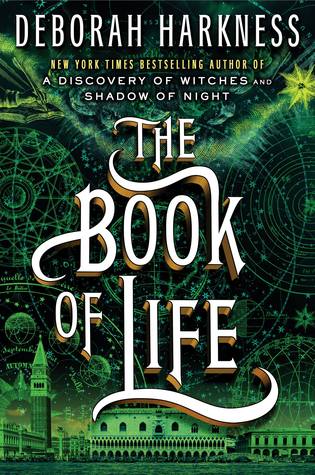I really wanted to like the The All Souls trilogy, and I do, but mostly in theory. It’s a smart fantasy narrative about grown up witches and vampires, who like wine, history, and who also happen to be professors at prestigious universities. The first book in the series, Discovery of Witches, introduces the McGuffin of THE BOOK, which sets the stage for it’s final reveal in this third volume, The Book of Life. Sadly, it fails to deliver a satisfying conclusion regarding the book, it’s origin, and the stories it fails to share about the nature of witches, vampires, demons and humans. Sure, Prof. Vampire and his research group determine we’re all related genetically, but you can’t just science the magic out of a fantasy novel.
I found myself so interested in the mystery of the Book of Life because I failed to connect with the characters after book one. Protagonist Diana starts as a fun, smart, gutsy gal with real hobbies, who fulfills her first and only arc by deciding to embrace her witch heritage and deciding to work with the vampire stalking her. Also, there’s lots of really good descriptive smells. That’s really only book one, though. Once Diana and Matthew (Prof Vampire) get married, start trying to have babies, and running from their enemies into the past, they lost my ability to believe they were ever in any real danger. Book two kept me going because of the rich detail-oriented world building of daily life in Victorian England. And although not all the time travel paradoxes were ironed out, I was often pleasantly surprised by the many uses it provided the plot for sentimental value.
In this final volume, Diana and Matthew must face Matthew’s crazy witch raping son who intends to breed a race of super creatures, and the Covenant, an ancient society meant to keep witches, vampires, and demons separate, who’ve been on their tracks since the beginning. They deal with both of those, find the Book of Life, and live happily ever after with their half vampire/ half witch twin babies. The large cast of characters demonstrate powerful themes of family honor and loyalty beyond the nuclear family to include biological, adopted, turned family, and gay best friends. Modern day science is used to explain genetic foundations of ancient mysterious diseases once thought as curses and discredits the Covenant’s racial purity laws. These are good themes, but overtly simple, so there was no question who would win in the end. It was a good idea that simply didn’t work very well for me.
